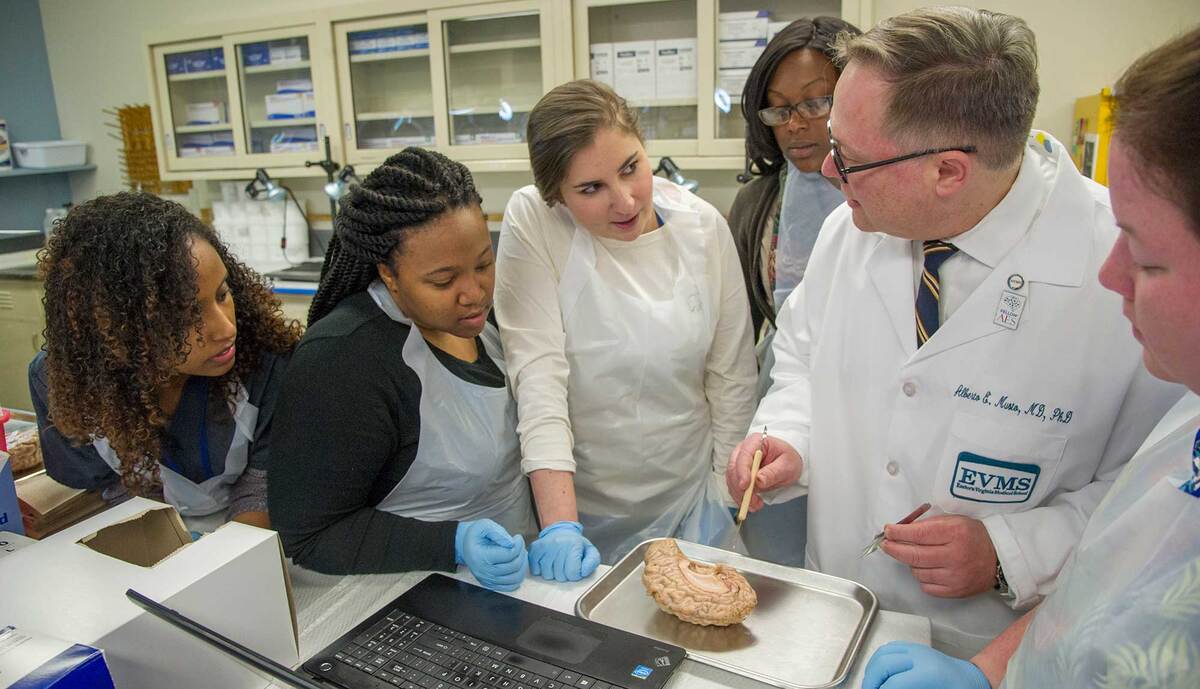
When it comes to healthcare professions, the role of a pathologist assistant may not immediately come to mind. However, these highly skilled individuals play a crucial role in diagnosing diseases, investigating causes of death, and contributing to medical research. Pathologist assistants work closely with pathologists, performing various tasks such as specimen preparation, tissue examination, and laboratory procedures.
In this article, we will delve into the fascinating world of pathologist assistants and uncover 12 intriguing facts about their profession. From their crucial role in the diagnostic process to their contributions to medical advancements, pathologist assistants possess a unique blend of medical knowledge and laboratory skills that make them indispensable in the field of pathology.
Key Takeaways:
- Pathologist assistants play a crucial role in healthcare by helping diagnose diseases and determining the cause of death through meticulous examination and analysis of tissue samples.
- They undergo extensive education and training, possess strong attention to detail, and continuously strive for professional development to contribute to accurate diagnoses and patient care.
Pathologist Assistant: A Vital Role in the Medical Field
Pathologist assistants play a crucial role in the healthcare system, working closely with pathologists to help diagnose diseases and determine the cause of death. Their meticulous examination and analysis of tissue samples contribute significantly to patient care and treatment.
Extensive Education and Training
Becoming a pathologist assistant requires completing a bachelor’s degree in a related field, followed by a master’s degree in pathologist assistant studies. This comprehensive education provides them with the necessary knowledge and skills to excel in their profession.
Precise Gross Examination
One of the key responsibilities of a pathologist assistant is to conduct a gross examination of anatomical specimens. This involves thorough visual inspection, measurement, and dissection to gather essential information to determine diagnoses accurately.
Expertise in Autopsies
Pathologist assistants are often involved in performing autopsies to determine the cause of death. Their expertise in autopsy procedures ensures that all necessary samples are collected and documented, aiding in the accurate determination of the underlying conditions.
Collaborative Approach
Pathologist assistants work closely with pathologists, other healthcare professionals, and laboratory staff. Their ability to collaborate and effectively communicate ensures seamless teamwork for accurate diagnoses and effective patient management.
Cutting-Edge Laboratory Techniques
Pathologist assistants are well-versed in the latest laboratory techniques and technologies. From immunohistochemistry to molecular diagnostics, they utilize these advanced methods to obtain precise and reliable results.
Research and Quality Improvement
Pathologist assistants actively participate in research projects and quality improvement initiatives. They contribute valuable insights and data analysis to advance healthcare practices and enhance patient outcomes.
Strong Attention to Detail
Pathologist assistants possess an impeccable attention to detail, ensuring that nothing goes unnoticed during sample examination. This meticulous approach is crucial for identifying subtle abnormalities and providing accurate diagnoses.
Continuous Professional Development
Pathologist assistants understand the importance of lifelong learning and continuously strive to expand their knowledge and skills. They participate in professional development activities, attend conferences, and stay updated with the latest advancements in their field.
Varied Work Settings
Pathologist assistants can work in a variety of healthcare settings, including hospitals, research laboratories, academic institutions, and medical examiner offices. This adaptability allows them to contribute to different aspects of pathology and broaden their professional experiences.
Critical Thinkers and Problem Solvers
Pathologist assistants possess strong critical thinking and problem-solving skills. They carefully analyze complex cases, consider all possibilities, and provide valuable insights that help pathologists make accurate diagnoses and inform treatment plans.
Essential for Patient Care
Pathologist assistants play an essential role in patient care by providing accurate and timely pathology reports. Their expertise helps physicians make informed decisions and ensures that patients receive appropriate treatment for their conditions.
Conclusion
In conclusion, the role of a pathologist assistant is intriguing and essential in the field of healthcare. Pathologist assistants play a vital role in diagnosing diseases, conducting autopsies, and providing valuable support to pathologists. They assist in gathering samples, analyzing tissues, and using advanced technology to aid in accurate diagnoses.With their extensive knowledge in anatomy, physiology, and pathology, pathologist assistants contribute significantly to medical research and advancements. Their expertise ensures that patients receive accurate diagnoses and appropriate treatment plans.If you have a passion for both science and healthcare, a career as a pathologist assistant might be the perfect fit for you. This field offers stimulating work, opportunities for continuous learning, and the chance to make a meaningful impact on patients’ lives.Consider exploring the pathologist assistant profession further to see if it aligns with your interests and goals. Embark on a rewarding journey in the field of pathology and contribute to the advancement of medical knowledge and patient care.
FAQs
1. What qualifications are required to become a pathologist assistant?
To become a pathologist assistant, you typically need a bachelor’s degree in a related field, such as biology or medical laboratory science. Some programs may also require a master’s degree in pathologist assistant studies. Additionally, completing a pathologist assistant program accredited by the National Accrediting Agency for Clinical Laboratory Sciences (NAACLS) is essential.
2. What are the primary responsibilities of a pathologist assistant?
Pathologist assistants work closely with pathologists to prepare and examine tissue samples, perform autopsies, and assist in the diagnosis of diseases. They are responsible for ensuring accurate documentation, analyzing specimens, and communicating findings to the medical team.
3. What is the job outlook for pathologist assistants?
The job outlook for pathologist assistants is excellent, with a growing demand in the healthcare industry. As advancements in medical research and technology continue, the need for skilled professionals in pathology is expected to rise.
4. Can pathologist assistants specialize in a specific area?
Yes, pathologist assistants have the opportunity to specialize in various areas such as surgical pathology, autopsy pathology, dermatopathology, or cytopathology. Specializing allows for more focused expertise and opens up additional career opportunities.
5. How long does it take to become a pathologist assistant?
The path to becoming a pathologist assistant typically takes around 5 to 7 years. This includes completing a bachelor’s degree, a pathologist assistant program, and potentially pursuing a master’s degree in the field.
6. What skills are essential for a pathologist assistant?
Pathologist assistants should have strong analytical skills, attention to detail, and excellent communication abilities. They need to be proficient in using laboratory equipment and possess a deep understanding of anatomy and pathology.
7. Are pathologist assistants licensed or certified?
While licensure requirements vary by state, pathologist assistants are typically required to be certified. The American Society for Clinical Pathology (ASCP) offers certification for pathologist assistants after completing an accredited program and passing the certification exam.
Embark on a fascinating journey through the world of medical science, where pathologist assistants play a crucial role in diagnosing diseases and ensuring accurate treatment plans. Beyond their realm, speech pathologists delve into the intricacies of communication disorders, helping individuals overcome challenges and improve their quality of life. Moreover, understanding the significance of supraclavicular lymph nodes in medical diagnoses can provide valuable insights into various health conditions.
Was this page helpful?
Our commitment to delivering trustworthy and engaging content is at the heart of what we do. Each fact on our site is contributed by real users like you, bringing a wealth of diverse insights and information. To ensure the highest standards of accuracy and reliability, our dedicated editors meticulously review each submission. This process guarantees that the facts we share are not only fascinating but also credible. Trust in our commitment to quality and authenticity as you explore and learn with us.


